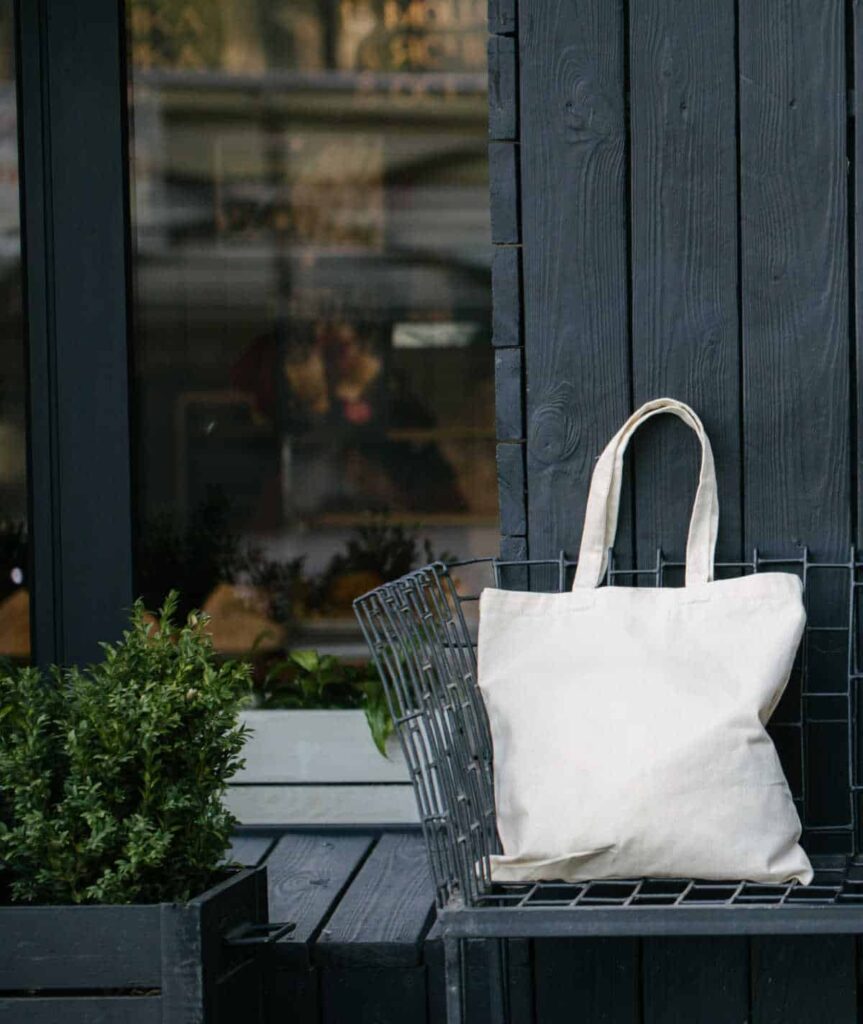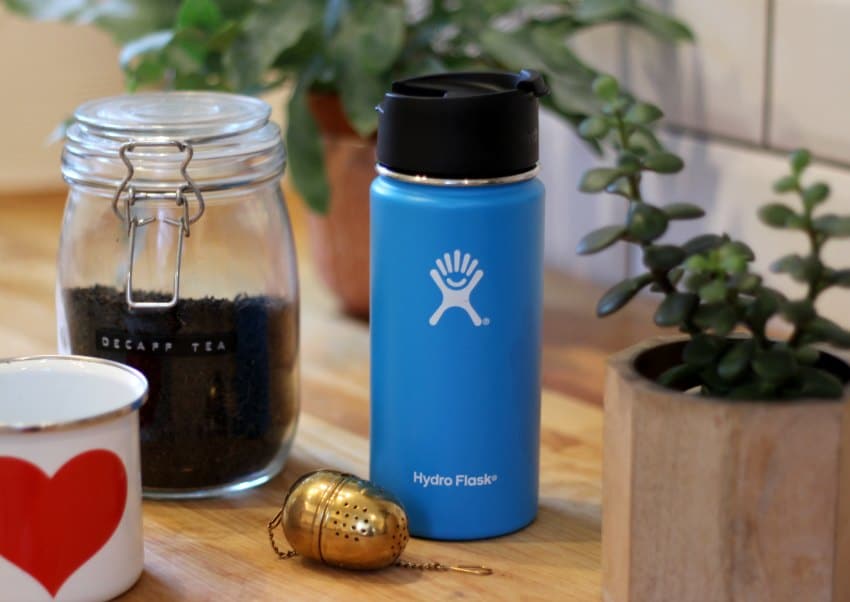How To Make Citric Acid Cleaning Spray (Plastic-Free!)
To support the running costs of Moral Fibres, this post may contain affiliate links. This means Moral Fibres may earn a small commission, at no extra cost to readers, on items purchased through these links.
Like natural cleaning but don’t like the smell of vinegar? Worry not – let me show you how to make this plastic-free citric acid cleaning spray.
I love a good plastic-free cleaning hack. I make most of my own homemade cleaning products, a lot of which are made without plastic.
Then there are the cleaning products that are made with white vinegar. Now, I love white vinegar and buy my vinegar in bulk, but of course, it comes in a five-litre plastic carton.
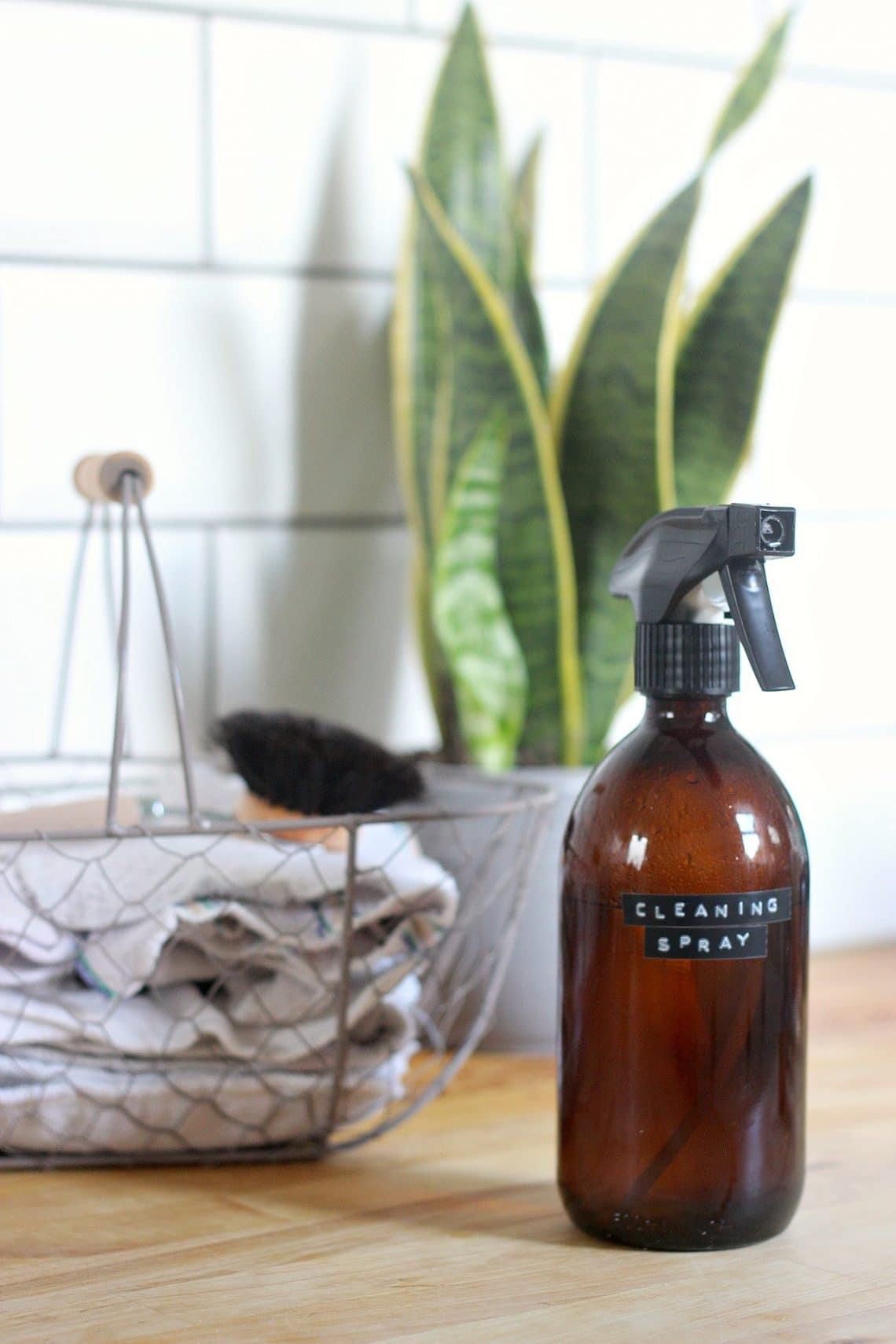
I use white vinegar a lot in my cleaning and laundry. So for me, it’s a good environmental practice to purchase bulk white vinegar, rather than individual plastic bottles of chemically dubious shop-bought cleaning products.
However, I have had people ask me if there is a plastic-free way to buy white vinegar in large volumes. The simple answer is that sadly there is currently no way to buy white vinegar in bulk sizes in anything but plastic. Vinegar corrodes metal. And a five-litre glass bottle would be difficult to transport and prone to breakage.
Even if you buy vinegar from a zero-waste shop, that vinegar probably arrived at the shop in a five-litre plastic carton because there’s no other easy way to transport 5 litres of vinegar in anything but plastic. Plastic it is, sadly.
A Plastic-Free Cleaning Hack
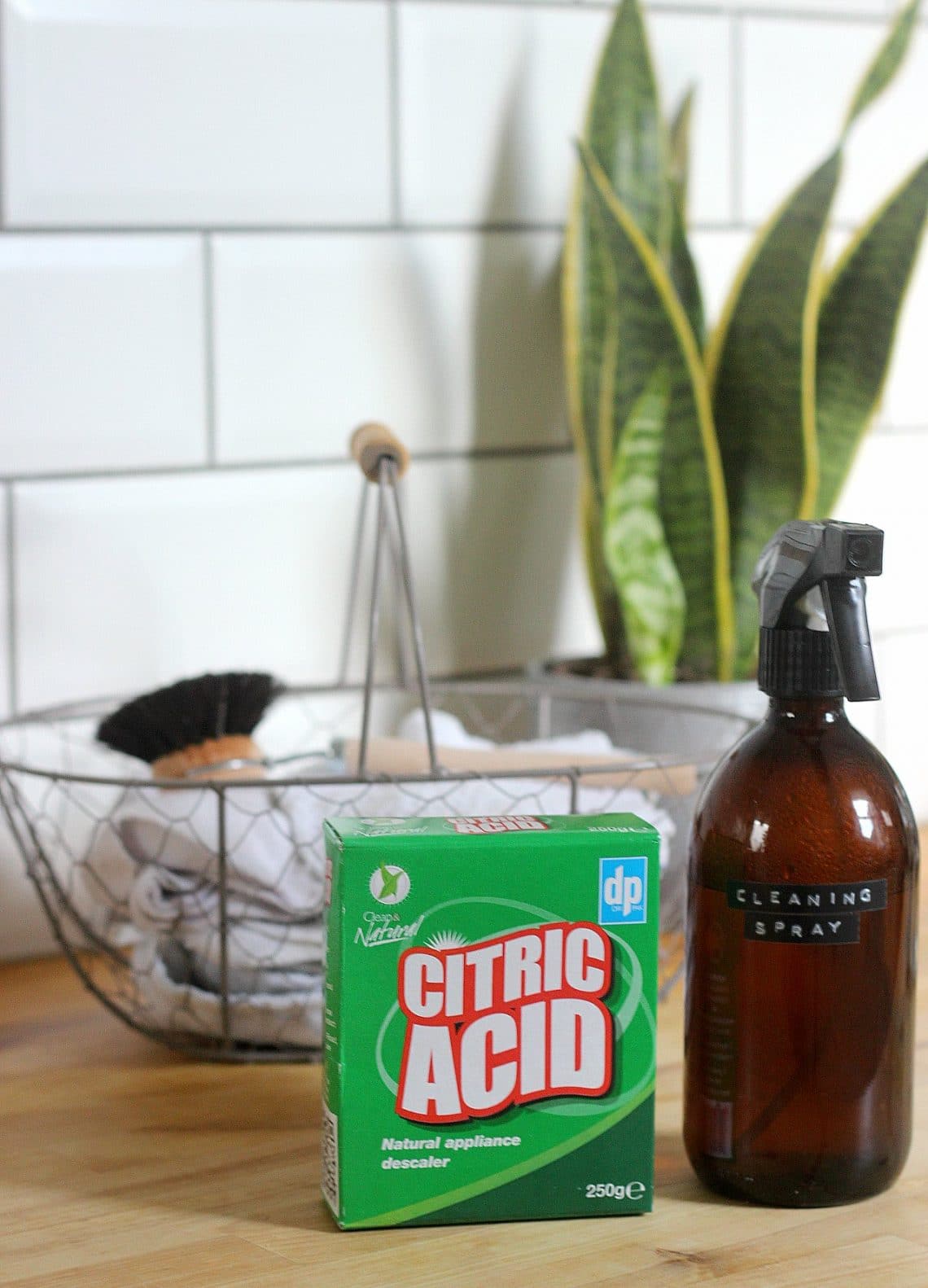
However, I recently discovered a clever plastic-free cleaning hack from Dri-Pak that acts as a brilliant white vinegar substitute. It also has the added benefit that it doesn’t smell like vinegar. This is a big plus if you or a family member is a little nose-sensitive to white vinegar.
What is it? A humble £2 cardboard box of Citric Acid.
With this little plastic-free box of wonder that is citric acid, you can create vinegar-free cleaning sprays for your home, or use it in place of vinegar in most natural cleaning recipes that call for vinegar. The only place I wouldn’t use citric acid as a vinegar replacement is in your laundry – for example, in homemade fabric conditioner. This is because citric acid can have a mild bleaching effect on coloured clothing.
What is Citric Acid?
Citric acid is an acid compound found naturally in citrus fruits, particularly lemon and limes, but can also be formulated by fermenting sugars. Visually, it looks a lot like sugar.
Its name sounds a little scary, but it’s actually a key component in home-brewing beer, and in bath bombs. Because it’s naturally found in food; used in food and drink production, and also easily biodegrades, then it’s 100% safe to use around the home in green cleaning. There are, of course, a few caveats for safe making and usage (see below).
You can find out more about citric acid in my full guide to citric acid for cleaning.
How to Make Citric Acid Cleaning Spray
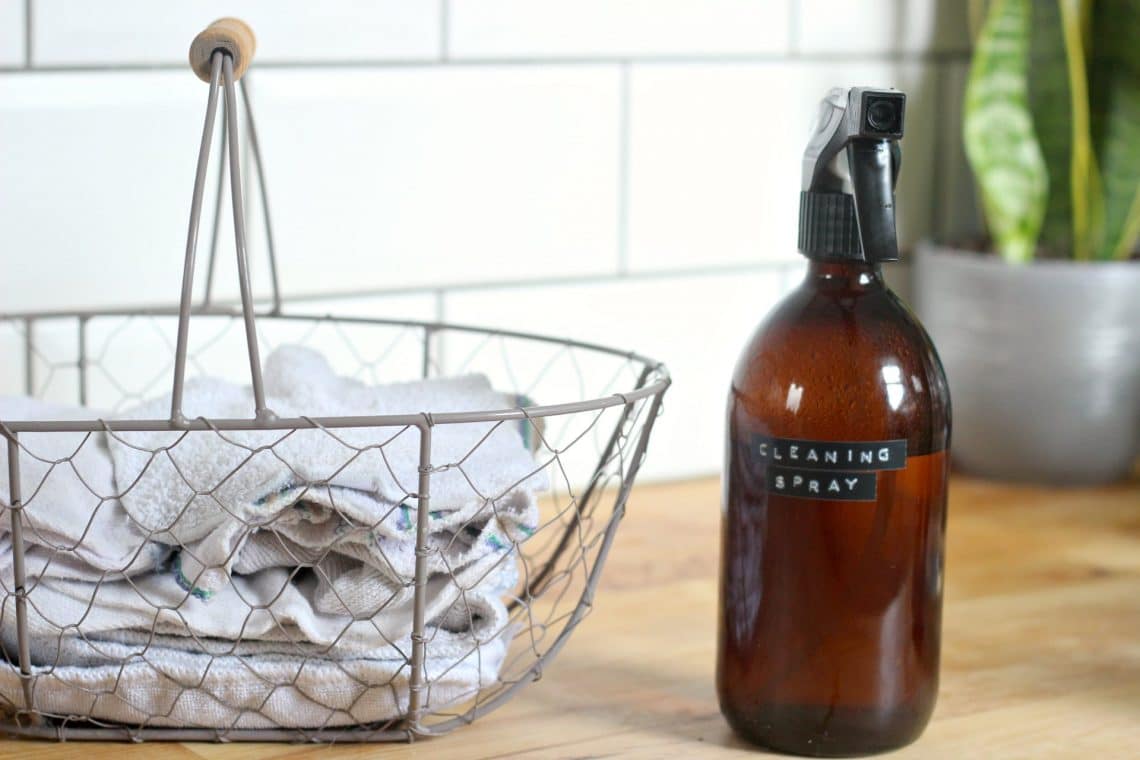
Here’s everything you need to know to get started:
Ingredients & Equipment Required
- 500 ml hot water (boil first, and then allow to cool for 10 minutes)
- A measuring jug and spoon
- 2 tablespoons citric acid – Here are the best places to buy citric acid in the UK.
- 500 ml spray bottle and spray nozzle – Here’s where to source glass cleaning bottles, including some suggestions for recycling and reusing. Alternatively, you can purchase a glass spray bottle here.
- Optional: a few drops of your favourite essential oil
Method
- For this homemade citric acid cleaning spray, pour the hot water into your measuring jug.
- Next, add the citric acid to the hot water, stirring well to dissolve it.
- Once dissolved, add 20 drops of essential oil if required. I went for 10 drops of lemon essential oil and 10 drops of rosemary essential oil for a Mediterranean-scented cleaning spray. But do feel free to use what you have to hand. Lavender essential oil and tea tree essential oil are both great anti-bacterial options, for example.
- Decant the mixture into a labelled spray bottle and off you go!
Once made, this spray will last for around 8 weeks. If it starts to look or smell off before the 8-week mark, discard it and make it again.
What Can You Clean With Citric Acid?
Citric acid is a great all-round cleaner. It kills bacteria, mould, and mildew, and is brilliant for general disinfecting and cleaning. Where it comes into its own is that it’s really effective at removing soap scum, hard water stains, calcium deposits, lime, and rust.
I just cleaned my glass shower screen with the cleaning spray and a cloth. See for yourself how effective this citric acid cleaning spray can be. I know I love a good before and after:
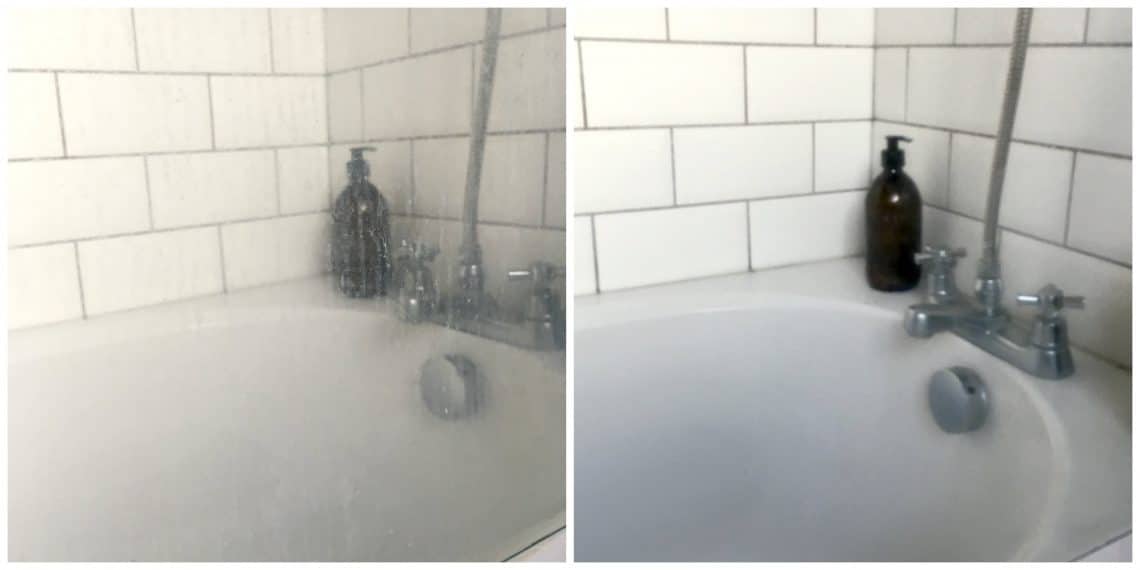
You can clean all surfaces with citric acid except stone, marble, and granite. You’ll want to make a stone-safe cleaning spray for this job. Need a recipe? You can find one on page 34 of my book, Fresh Clean Home.
You can also use citric acid to clean your toilet – click the link to see the full how-to.
Safety First When Using Citric Acid for Cleaning
Whilst citric acid is a natural ingredient, it is still a chemical. As such the powder can still cause damage and irritation if handled incorrectly. I prefer to use it in a well-ventilated area. Particularly as breathing in citric acid can cause respiratory symptoms, such as a cough, shortness of breath, and a sore throat.
Citric acid can also irritate your skin and eyes. It’s therefore important to take care when handling the powder not to spill it or rub your eyes before washing your hands.
And, as with any cleaning product, homemade or otherwise, always keep both the citric acid and any homemade cleaning spray, away from curious pets and/or children.
If citric acid isn’t for you, then do try this easy homemade cleaning spray recipe, that’s made with liquid castile soap.
Found this post useful? Please consider buying me a virtual coffee to help support the site’s running costs.


